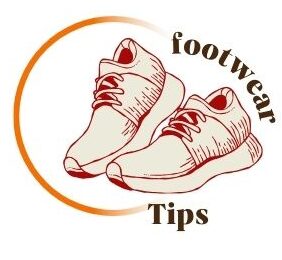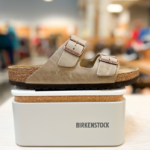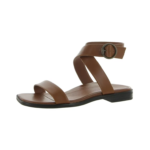Address:
- 2365 Hood Avenue, San Diego, CA, 92123
I wear thin soled shoes on pavement for better ground feel and foot strength. The minimalist design enhances proprioception and natural movement.
Walking on pavement with thin soled shoes offers numerous benefits beyond just fashion. It improves posture, balance, and strengthens foot muscles. By allowing your feet to move more naturally, you can prevent common issues like plantar fasciitis and improve overall foot health.
The minimalist design also promotes a more mindful walking experience, as you become more connected to the ground beneath you. So, next time you’re out for a stroll, consider slipping on your thin soled shoes for a more comfortable and beneficial walk.
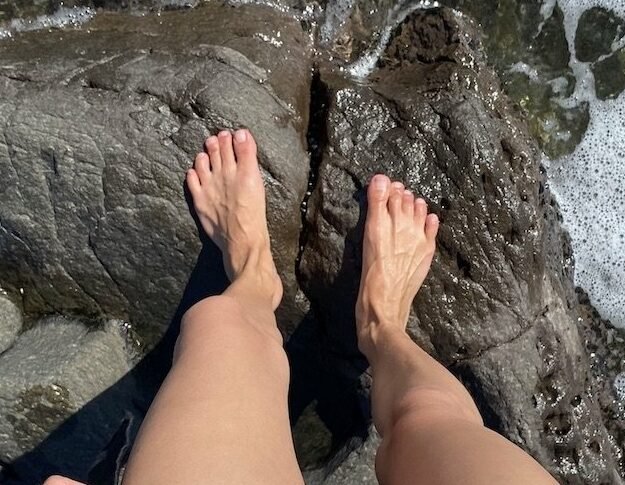
Credit: anyasreviews.com
Discover the benefits of wearing thin soled shoes, even on pavement. Embracing the natural feel of the ground can improve posture and strengthen foot muscles. Experience a closer connection to the earth with each step taken in thin soled shoes.
When it comes to footwear, many of us prioritize style and appearance over comfort and foot health. However, there is a growing trend among individuals who prefer to wear thin soled shoes even on pavement. In this blog post, we will explore the reasons behind this choice and shed light on the benefits of opting for thin soled shoes.
Thin soled shoes, as the name suggests, are footwear that have a thinner sole compared to traditional shoes. These shoes are designed to provide a more natural and minimalist experience for the feet. Unlike thick-soled shoes that often have cushioning and support features, thin soled shoes offer a closer connection between the feet and the ground.
Typically, thin soled shoes are made from lightweight and flexible materials such as canvas or leather. They often have a flat or minimal heel, allowing the feet to maintain a more neutral position. Some popular examples of thin soled shoes include minimalist running shoes, ballet flats, and certain types of sandals.
Over the years, footwear has evolved to prioritize comfort and foot health. In the past, shoes were primarily designed to protect the feet from harsh surfaces and provide stability. However, advancements in technology and a better understanding of the human foot have led to the development of shoes that offer both protection and natural movement.
Thick-soled shoes with added cushioning and arch support became popular as they promised enhanced comfort. However, some argue that these features can weaken the foot muscles and alter natural foot mechanics. This is where thin soled shoes come into play.
Thin soled shoes promote a more natural gait pattern and engage the foot muscles, allowing them to function as they were intended. By providing a minimal barrier between the feet and the ground, these shoes encourage a more sensory experience, allowing the feet to feel and respond to the terrain.
Moreover, wearing thin soled shoes can also help improve balance and proprioception. The reduced thickness of the sole allows for better feedback from the ground, enabling the feet to make necessary adjustments to maintain stability.
In addition to the physical benefits, thin soled shoes can also offer a sense of freedom and connection with the environment. The lightweight and flexible nature of these shoes make them ideal for activities like walking, running, and even everyday wear.
Walking on thin soled shoes, even on pavement, may seem unconventional, but the science behind comfort and foot health supports this choice. Understanding the biomechanics of walking and how thin soles affect the feet can shed light on why many individuals opt for this footwear option.
When walking, the body’s weight is distributed from the heel to the toes, and the foot naturally rolls from the outer edge to the inner edge. The biomechanics of walking show that the feet are designed to flex and move naturally, adapting to the terrain beneath them.
Thin soled shoes allow for greater sensory feedback, enabling the feet to engage with the ground more effectively. This heightened awareness helps the body adjust and distribute weight more evenly, reducing strain on specific pressure points. Additionally, the flexibility of thin soles promotes a more natural gait, supporting the foot’s natural movement patterns.
Wearing thin-soled shoes on pavement might seem counterintuitive to many. However, my personal journey has led me to embrace this unconventional choice. Initially skeptical, I had my doubts about the comfort and support thin soles could offer on hard urban surfaces. But a turning point changed my perspective, and I discovered the myriad benefits of this footwear choice.
At first, I was hesitant about the idea of wearing thin-soled shoes on pavement. I questioned their ability to provide adequate cushioning and protection, especially when navigating the unforgiving concrete jungle. The perceived lack of support left me uncertain about their suitability for everyday use.
However, a pivotal experience reshaped my viewpoint. As I delved deeper into the world of minimalist footwear, I noticed a remarkable improvement in my posture and balance. The enhanced sensory feedback from the ground beneath my feet not only strengthened my lower body but also fostered a more natural gait.
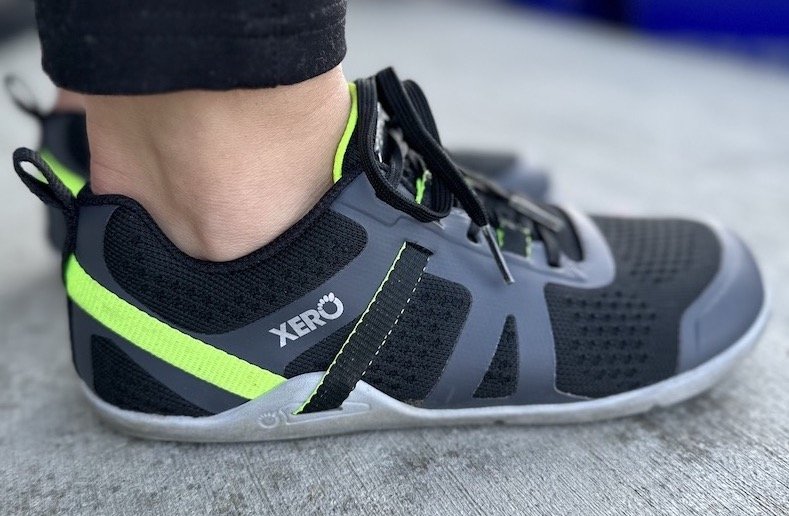
Credit: anyasreviews.com
When it comes to choosing the right footwear, many people prioritize style over functionality. However, there are numerous health benefits associated with wearing thin-soled shoes, even on pavement. In this blog post, we will explore these benefits in detail, focusing on improved posture and enhanced foot mechanics.
Wearing thin-soled shoes can significantly improve your posture. The thin sole allows your feet to make better contact with the ground, promoting a more natural alignment of your spine. When you wear shoes with thick soles, your body weight is often distributed unevenly, leading to poor posture and potential back pain. Thin-soled shoes provide a more stable base for your feet, encouraging proper alignment and reducing the strain on your back.
Thin-soled shoes also offer several benefits for foot mechanics. They allow your feet to move and flex more naturally, promoting better balance and stability. The thin sole provides greater sensory feedback, allowing your feet to adapt and adjust to different surfaces more effectively. This can help strengthen the muscles in your feet and lower legs, improving overall foot mechanics and reducing the risk of injuries.
Additionally, thin-soled shoes encourage a more natural gait pattern. When you wear shoes with thick soles, your natural foot movement may be restricted, leading to an altered gait. This can put unnecessary strain on your joints and muscles, potentially leading to discomfort or injury. By wearing thin-soled shoes, you allow your feet to move in a more natural and unrestricted manner, promoting a healthier gait.
In conclusion, wearing thin-soled shoes, even on pavement, offers significant health benefits. They improve posture by providing a stable base for your feet, reducing strain on your back. Additionally, they enhance foot mechanics, promoting better balance, stability, and a more natural gait pattern. Consider incorporating thin-soled shoes into your footwear rotation to experience these benefits firsthand.
When it comes to choosing the right footwear for walking on pavement, the debate between thick and thin soles is a common one. Thick-soled shoes are often marketed for their cushioning and support, while thin-soled shoes are praised for their flexibility and ground feel.
Thin-soled shoes, such as minimalist or barefoot shoes, have gained popularity among pavement walkers for their ability to provide a closer connection to the ground, allowing for a more natural walking experience. In contrast, thick-soled shoes offer more cushioning, which can be appealing for those seeking extra comfort and impact absorption.
While the thickness of the sole may seem like a crucial factor in shoe selection, it’s important to consider that thickness isn’t always synonymous with better performance. Thick soles may provide initial comfort, but they can also limit sensory feedback and natural foot movement. On the other hand, thin soles allow the feet to move more naturally and encourage better proprioception, which is the body’s ability to sense its position and movement in space.
Moreover, thick soles can sometimes lead to a disconnect between the feet and the ground, which may impact balance and stability. In contrast, thin soles promote a more responsive and adaptive walking experience, allowing the feet to better adjust to uneven surfaces and variations in terrain.
In the world of urban exploration, the choice to wear thin-soled shoes even on pavement comes with its own set of challenges and solutions. From dealing with skepticism to finding the perfect pair, there are ways to navigate these obstacles.
When others question my choice of thin-soled shoes, I stand by my reasons confidently. The minimalist design enhances my connection to the ground.
Selecting the right thin-soled shoes is crucial for comfort and support. Look for flexible yet durable materials to ensure a balance of protection and ground-feel.
Choosing to wear thin-soled shoes even on pavement is a lifestyle choice that goes beyond just footwear. It’s about seamlessly integrating comfort and practicality into everyday activities.
Walking becomes more enjoyable and natural with thin-soled shoes. Running errands feels effortless and stress-free.
From urban streets to nature trails, thin-soled shoes allow for smooth transitions without sacrificing comfort.

Credit: www.tiktok.com
Discover inspiring testimonials and success stories of individuals who choose to wear thin-soled shoes, even on pavement. Learn how they have found comfort and support in their daily activities, showcasing the benefits of this footwear choice. See how others have embraced this lifestyle and experienced positive results.
Testimonials and Success Stories From Skeptics to Believers Life-Changing ExperiencesAs thin-soled shoes gain popularity, skeptics turned believers share life-changing experiences.From Skeptics to Believers– Many initially doubted thin-soled shoes on pavement. – Skeptics now swear by the comfort and benefits. – Transition from disbelief to enthusiastic support. – Personal testimonials showcase remarkable transformations.Life-Changing Experiences– Improved posture and reduced back pain reported. – Enhanced balance and agility experienced by many. – Increased foot strength and flexibility observed. – Overall well-being positively impacted by thin-soled shoes.Incredible stories of skeptics turned believers and life-changing experiences highlight the undeniable benefits of wearing thin-soled shoes, even on pavement.Wearing thin soled shoes allows you to have better control and feel for the ground beneath you. This can improve your balance and stability, as well as strengthen your feet and lower legs.
Yes, thin soled shoes can be worn on pavement. In fact, they can be beneficial for running or walking on hard surfaces as they allow for better feedback from the ground and can improve your technique.
Wearing thin soled shoes can cause some discomfort initially as your feet adjust to the new sensation. However, in the long term, they can help prevent foot pain and injuries by improving your natural foot mechanics.
Yes, thin soled shoes can be worn for sports such as running, weightlifting, and martial arts. They can improve your performance and technique by allowing for better feedback from the ground and promoting proper foot mechanics.
Wearing thin-soled shoes on pavement may seem counterintuitive, but it can have numerous benefits. Not only can it improve your balance and posture, but it also strengthens your feet and improves your overall foot health. By choosing the right pair of thin-soled shoes, you can enjoy a more natural walking experience while protecting your feet from potential injuries.
So, the next time you’re out shopping for shoes, consider giving thin-soled shoes a chance and see the difference for yourself.
Get our most valuable tips right inside your inbox, once per month!
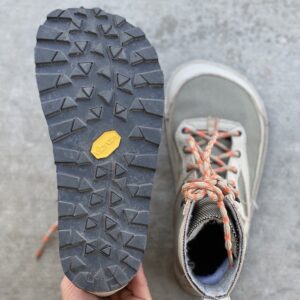
Looking for walking shoes with a wide toe box? Check out these top options for men and women that offer comfort, support, and a roomy
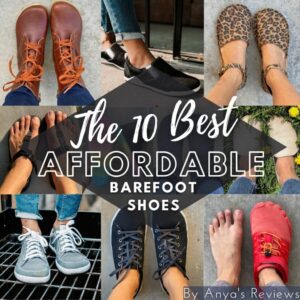
Looking for cheap barefoot shoes? Check out WHITIN Men’s Ultra-ventilated Barefoot Shoes for $19.99 on Amazon.com or Men’s Quick-dry Barefoot Shoes for $8.47 on Temu.
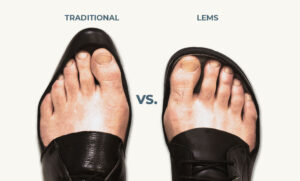
Foot-shaped shoes are available in various brands such as Lems Shoes, Padgene, Barekick, WHITIN, relxfeet, Xero Shoes, New Balance, Earthing Harmony, Atoms, BRONAX, Hike Footwear,

Toddler Barefoot Shoes provide a minimalist and lightweight option for kids to splay their feet naturally while walking, running, or playing sports. These shoes have
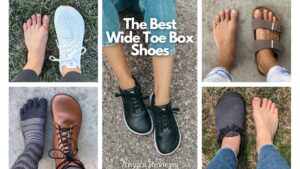
Discover a variety of wide toe box shoes for women in Austin, Texas, including options from Orthofeet, WHITIN, Temu, and more. These shoes offer comfort
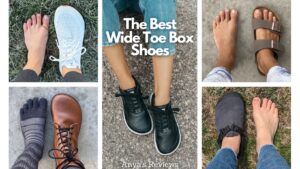
Toe box shoes provide ample space for the toes, allowing them to move freely and comfortably. They are available in various styles and sizes, with
